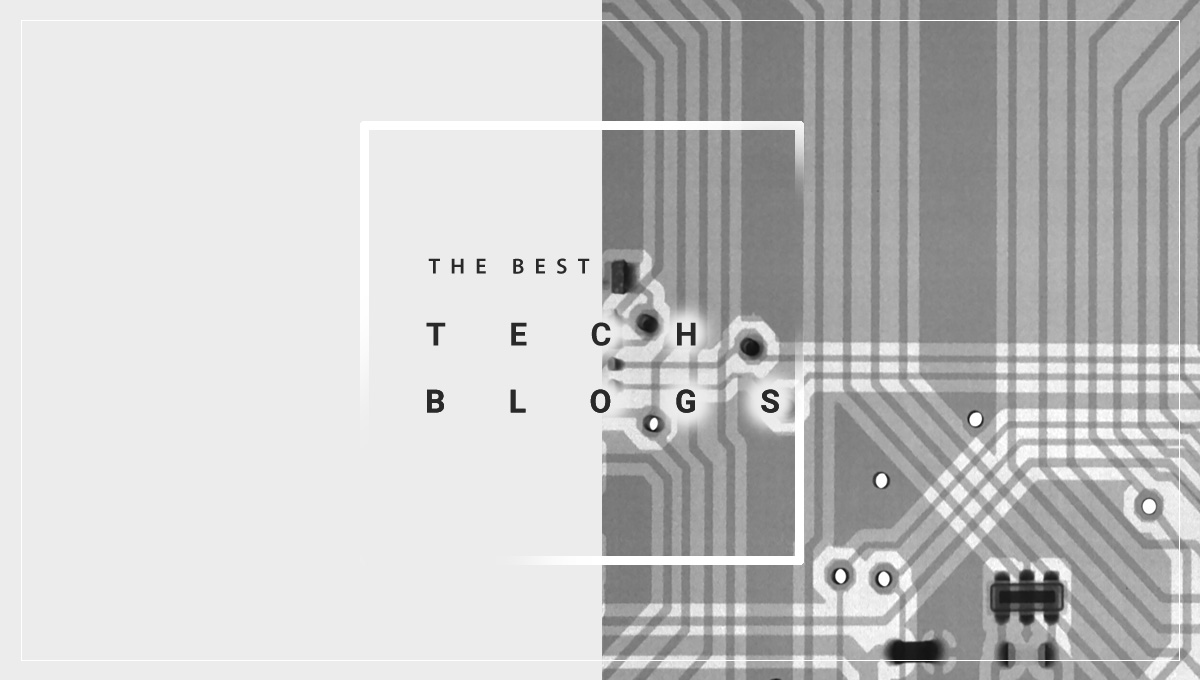The Advancement of the Best tech blog: A Trip With Tech History and Future Trends
The Advancement of the Best tech blog: A Trip With Tech History and Future Trends
Blog Article
How Blockchain Innovation Is Revolutionizing Data Safety And Security
Blockchain innovation is essentially modifying the landscape of data safety and security by introducing a decentralized framework that promises boosted openness and durability. Unlike standard systems, which depend on centralized data databases, blockchain distributes data throughout a network, lessening susceptabilities and solitary factors of failing. The use of advanced cryptographic strategies makes certain that information stays tamper-proof, fostering trust amongst stakeholders and users. As industries quickly adapt to this modern technology, concerns occur concerning its wider impact and potential obstacles. What effects does this change hold for future data defense techniques and regulatory frameworks? The solutions might shock you (Best tech blog).
The Basics of Blockchain
Blockchain modern technology, a revolutionary idea in digital information administration, essentially changes exactly how information is stored and safeguarded. At its core, a blockchain is a distributed journal that tape-records purchases throughout a network of computer systems, ensuring transparency and immutability. The modern technology runs on a chain of blocks, each containing a listing of transactions. Once a block is loaded, it is time-stamped and linked to the previous block, producing a sequential chain.
Secret to recognizing blockchain is the hashing process, which secures deal data into a special alphanumeric code. This cryptographic function ensures that any type of alteration in the transaction data causes an entirely different hash, consequently guarding against tampering. The consensus mechanism, one more vital part, confirms and confirms new deals through a network of nodes, consequently getting rid of the requirement for a centralized authority.
In addition, blockchain's append-only structure ensures that information, as soon as included, can not be deleted or modified. This particular guarantees a verifiable and permanent record of transactions, fostering depend on among participants. As an outcome, blockchain gives a robust structure for data honesty, providing markets a trustworthy method for monitoring and handling electronic info in a protected, transparent way.
Decentralization and Security
Decentralization, a core concept of blockchain technology, considerably improves data safety and security by dispersing control throughout a network rather than depending on a particular, central entity. By distributing data across many nodes, blockchain ensures that also if one node is jeopardized, the whole network continues to be secure.

Additionally, decentralization encourages users with higher control over their information. Each participant in the network has access to the entire blockchain, permitting them to verify and examine deals independently. This transparency cultivates trust fund amongst customers, as they do not need to count on a central authority to guarantee data honesty. Overall, decentralization is instrumental in boosting information safety and security in blockchain networks.

Cryptographic Techniques
At the heart of blockchain innovation, cryptographic methods play a crucial duty in safeguarding have a peek here data, guaranteeing both discretion and honesty. Cryptography in blockchain uses a combination of symmetrical and crooked algorithms to encrypt information, making it obtainable only to accredited parties.
Hash features are an additional essential component, changing input information right into a fixed-size string of characters, effectively producing an one-of-a-kind digital fingerprint for every block. This guarantees that any type of attempt to alter the information will certainly cause a totally different hash, thus keeping the immutability of the blockchain. Digital trademarks verify the authenticity and honesty of deals, providing a layer of non-repudiation.
The decentralized nature of blockchain, incorporated with durable cryptographic techniques, removes the requirement for middlemans, lowering prospective vulnerabilities. As blockchain modern technology develops, developments in cryptography such as zero-knowledge proofs and homomorphic file encryption continue to improve protection steps, further strengthening data security in this revolutionary electronic ledger system.
Usage Situations Throughout Industries

In the healthcare industry, blockchain guarantees the safe and secure storage and sharing of client records, promoting interoperability while protecting sensitive data from unapproved accessibility. This modern technology encourages people with control over their case history and promotes smooth sychronisation amongst doctor.
Supply chain administration benefits considerably from blockchain's immutable ledger, which makes certain traceability and credibility of products from beginning to consumer. By enhancing transparency, blockchain aids alleviate problems such as counterfeiting and dishonest sourcing.
Additionally, blockchain's decentralized nature is reshaping the energy field by making it possible for peer-to-peer power trading, where consumers can deal excess renewable resource directly. This cultivates an extra lasting and effective energy ecosystem.
In the world of intellectual residential or commercial property, blockchain supplies a tamper-proof platform for developers to sign up and secure their jobs, making certain rightful acknowledgment and reasonable payment. These diverse usage situations underscore blockchain's function as a pivotal pressure in redefining data safety across markets.
Future of Information Protection
As we a fantastic read seek to the future of data security, blockchain modern technology is positioned to play a critical duty in protecting digital information. With its decentralized and immutable attributes, blockchain offers a durable framework for safeguarding sensitive data against unapproved access and cyber dangers. This technology ensures that as soon as information is tape-recorded, it is nearly difficult to modify without detection, therefore providing a considerable advantage over conventional information storage space approaches.
The assimilation of blockchain with various other advanced technologies, such as artificial intelligence and the Net of Points (IoT), is expected to enhance information try this website security approaches further. By leveraging wise agreements, organizations can automate and impose security procedures, decreasing human error and increasing performance. Additionally, blockchain's capacity to offer transparent and deducible transactions will bolster trust fund and responsibility in information administration techniques.
As regulatory landscapes develop, blockchain's compliance-friendly nature will certainly end up being increasingly appropriate. It can aid companies satisfy rigid data defense laws, such as the General Information Security Guideline (GDPR) and the California Customer Personal Privacy Act (CCPA), by providing verifiable records of information processing activities. Ultimately, blockchain's distinct attributes setting it as a transformative tool in the continuous quest to safeguard the digital globe versus ever-evolving cyber hazards.
Verdict
Blockchain innovation stands for a standard shift in information safety and security by leveraging decentralization and cryptographic strategies to boost openness, count on, and data stability. As cyber hazards evolve, blockchain arises as an essential device for durable data defense throughout various sectors.
Blockchain innovation is essentially changing the landscape of data safety by introducing a decentralized structure that assures improved openness and resilience. Unlike conventional systems, which count on centralized data databases, blockchain disperses data throughout a network, reducing vulnerabilities and solitary factors of failing.Decentralization, a core principle of blockchain technology, dramatically enhances information safety and security by distributing control throughout a network rather than depending on a single, centralized entity.At the heart of blockchain innovation, cryptographic techniques play an essential role in safeguarding data, ensuring both discretion and integrity.Blockchain modern technology represents a paradigm change in data security by leveraging decentralization and cryptographic techniques to boost transparency, trust, and data stability.
Report this page